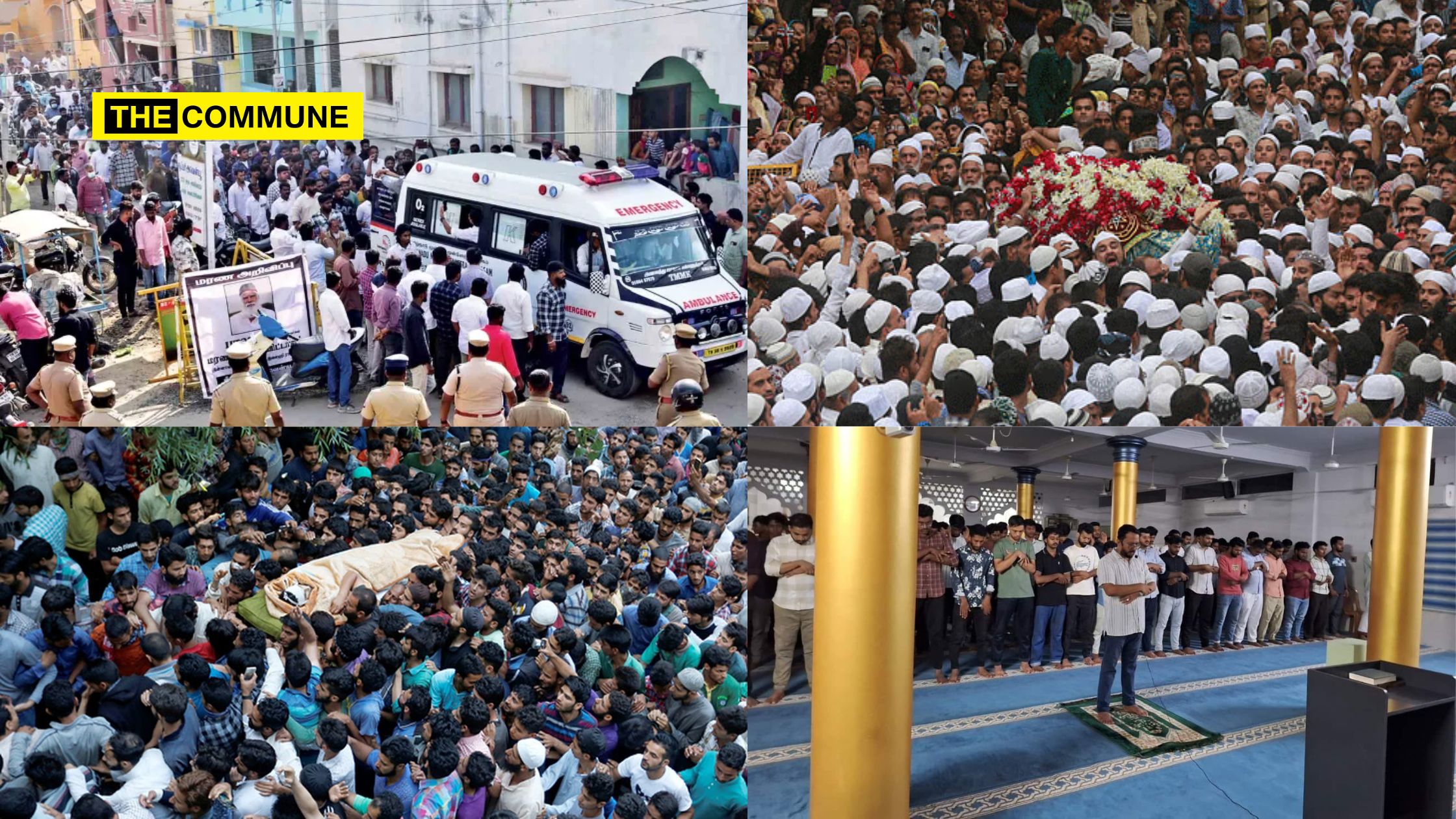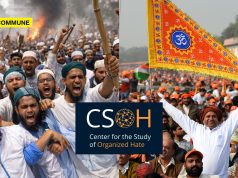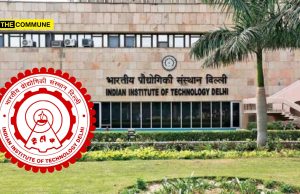
Thousands of Muslims, including Islamist Mobs, gathered in Coimbatore, Tamil Nadu to bid a final farewell to the 84-year-old Syed Abdul Basha, the mastermind of the Coimbatore bomb blasts of 1998, at his funeral after he died on 16 December 2024. On the other hand, Constable Bashir Ahmed was martyred in an encounter with terrorists in Jammu and Kashmir on 28 September 2024. Neither candle/poster marches nor rallies were organised for him nationwide.
Here is a compilation of 12 major incidents of Islamist mobs attending funerals in support of terrorists from the year 2013 to 2024.
#1 – Coimbatore, Tamil Nadu – 16 December 2024
S.A. Basha, the mastermind behind the 1998 Coimbatore serial blasts, passed away at the age of 84 during treatment at PSG Hospital. The blasts, which occurred on 14 February 1998, claimed the lives of 58 people and injured over 231. Basha, who was serving a life sentence for his role in the attacks, received a controversial farewell as thousands of people gathered to pay their respects, sparking debates and protests.
#2 – India – 29 September 2024
Following the death of Hezbollah Chief Hassan Nasrallah in Lebanon on 28 September 2024, various Muslim organizations in India, including those in Jammu and Kashmir, Delhi, and Uttar Pradesh, organized candlelight vigils, poster marches, and rallies. These groups referred to Nasrallah as a “martyr” while paying tributes to the Hezbollah leader, leading to widespread criticism and protests over glorifying a terrorist figure.
A controversial banner outside a Chennai Mosque praised Hezbollah leader Hassan Nasrallah, killed in an Israeli missile strike, calling him a “hero” and “Israel’s nightmare.” Featuring Imam Ali’s quote, it described Nasrallah’s death as martyrdom, sparking outrage over perceived local support for a terrorist organization and challenging internal security.
லெபனான் ஹிஸ்புல்லா பயங்கரவாதி சாவுக்கு சென்னை திருவல்லிக்கேணி மசூதி வாசலில் வீர மரணம் என பேனரா? பயங்கரவாதத்திற்கு அப்பட்ட ஆதரவு. அமைதி மார்கத்தினரின் அடாவடி!@tnpoliceoffl@hindumunnani_tn @ManaliManoharHM @kannan_kanal pic.twitter.com/itxeO02ZWh
— A.T.Elangovan (@elangovan_HM) September 30, 2024
#3 – Kerala – October 2024
In October 2024, a funeral prayer for Yahya Sinwar, the slain Hamas leader, was organized in Kerala by the Student’s Islamic Organization (SIO), sparking controversy. Sinwar, responsible for the October 7 attack in Israel, was killed by Israeli forces. The prayer, attended by local youth, drew criticism, especially given Kerala’s history of similar events. The SIO’s portrayal of Sinwar as a “valiant warrior” raised concerns about ideological sentiments in the region.
On October 7th, SIO, Jamaat-e-Islami’s student wing, celebrated the horrific anniversary of attack on israel, openly endorsing terrorism. And now they've organized funeral prayers for Hamas terrorist Yahya Sinwar. #Kerala has become a breeding ground for terror sympathizers… pic.twitter.com/ZGPiUtyvv5
— Shanthi Kumar (@BJPShanthikumar) October 20, 2024
#4 – Kulgam, Jammu and Kashmir – 25 March 2022
Dawood Ahmed Sheikh, a terrorist affiliated with Lashkar-e-Taiba (LeT), was killed in an encounter with Indian security forces in Kulgam district. Sheikh was involved in multiple attacks on security forces and other terrorist activities in Kashmir.
On 26 March 2022, thousands of people attended his funeral and raised slogans advocating freedom, highlighting continued tensions and deep-rooted challenges in the region.
#5 – Baramulla, Jammu and Kashmir – 30 June 2021
Altaf Ahmad Dar, the divisional commander of Hizbul Mujahideen and one of the top ten most-wanted terrorists in Kashmir, was killed in an encounter with Indian security forces. Dar had been a key figure in numerous terrorist activities in the region.
On 1 July 2021, hundreds gathered at his funeral in Baramulla, raising anti-national slogans and calling for war against the Indian Army, underscoring the charged atmosphere in the valley.
#6 – Pulwama, Jammu and Kashmir – 19 February 2020
Bashir Lashkari, a terrorist affiliated with Lashkar-e-Taiba (LeT), was killed in an encounter with security forces in Pulwama. Lashkari was linked to the 2019 Pulwama attack, which resulted in the martyrdom of 40 CRPF soldiers.
Thousands of people attended his funeral, raising anti-Indian Army and pro-freedom slogans, reflecting the persistent volatility and local support for militancy in the region.
#7 – Pulwama, Jammu and Kashmir – 6 August 2020
Mugees Ahmad Mir, a terrorist and key conspirator of the 2019 Pulwama attack, was killed in an encounter with Indian security forces in Pulwama.
On August 7, 2020, thousands gathered in Jakura for his funeral procession. Supporters raised slogans endorsing the Islamic State (ISIS) and draped Mir’s body in the ISIS flag. He was buried in Pampore amid heightened tensions.
#8 – Adoripora, Pulwama, Jammu and Kashmir – 23 May 2019
Zakir Musa, head of the terrorist organization Ansar Ghazwat-ul-Hind (AGH), was killed in an encounter with Indian security forces. Musa was known for advocating the establishment of Islamic rule in Kashmir.
Following his death, protests erupted in several parts of Kashmir, leading to the closure of schools and colleges. Over 1,000 people attended his funeral, raising slogans of freedom, emphasizing the lingering unrest in the valley.
#9 – Anantnag, Jammu and Kashmir – 8 July 2016
Hizbul Mujahideen commander Burhan Wani was killed in an encounter with Indian security forces in Anantnag. His death sparked widespread protests across the Kashmir Valley, where he was hailed as a martyr and a hero by many.
On 9 July 2016, over 200,000 people attended Wani’s funeral. His body, draped in a Pakistani flag, was buried beside his brother Khalid in Tral, showcasing the intense local support he garnered.
#10 – Bhopal, Madhya Pradesh – 31 October 2016
Five members of the banned Student Islamic Movement of India (SIMI) were killed in a police encounter following their escape from Khandwa Jail. The encounter occurred 30 km north of Bhopal after a crossfire.
A large crowd gathered for their funeral procession in Gulmohar Colony, where thousands hailed the terrorists as heroes. Stone-pelting incidents targeted the police during the procession, reflecting the contentious atmosphere surrounding their deaths.
#11 – Delhi – 30 July 2015
Yakub Memon, convicted for his role in the 1993 Mumbai bomb blasts, was executed in Tihar Jail on 30 July 2015. The blasts claimed 257 lives and injured over 700 people. Memon was sentenced to death by a special court in Mumbai in 2007.
Following his execution, protests and processions were organized in several states, including Mumbai, Delhi, Hyderabad, and Kashmir. Muslim community leaders like Abdul Rashid, Ali Mohammad Sayeed, and Mufti Mohammad Sayeed led these demonstrations, referring to Memon as a martyr, underlining the polarizing nature of his case.
#12 – Delhi – 9 February 2013
On 13 December 2001, the Indian Parliament was attacked by five terrorists, resulting in the deaths of nine security personnel and one civilian. Afzal Guru, accused of masterminding the attack and aiding the terrorists, was convicted and sentenced to death.
After extensive legal proceedings, Afzal Guru was executed in Delhi’s Tihar Jail on 9 February 2013. His execution sparked widespread protests in various cities, including Delhi (Jamia, JNU, and other locations). Several Kashmiri leaders, including Mirwaiz Umar Farooq, Ali Shah Geelani, and Yasin Malik, along with various organizations, labeled Afzal Guru as innocent, adding to the controversy surrounding his case.
Subscribe to our channels on Telegram, WhatsApp, and Instagram and get the best stories of the day delivered to you personally.




